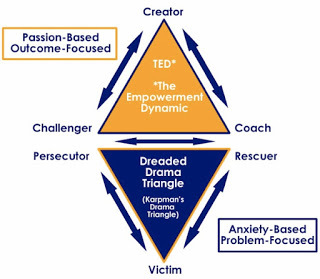Laura Collins Lyster-Mensh's Blog, page 9
November 10, 2015
Fragility as power: I need a fainting couch!
 I am noticing all around me -- in politics and social issues and local groups and advocacy and support circles -- the power of fragility to become something very much like aggression.
I am noticing all around me -- in politics and social issues and local groups and advocacy and support circles -- the power of fragility to become something very much like aggression.Who knew fragility was so powerful!
Anywhere good people are trying to do good things the power of fragility is not just in getting personal sympathy: it's a darn good way to stop uncomfortable conversation. Polite, decent people do not force people to talk when they don't want to. Nice people don't respond to tears without sympathy. While we all stop to fan someone with the vapors progress is put on hold.
But fragility is not always from weakness. It can be wielded as a form of power as well.
The power of being offended, feeling unsafe, and having one's motives questioned only works when the other people are caring, decent people. And who, I ask you, are the ones out there trying to do good but the decent and the caring?
It is an uneven playing field when some in the mix use fragility as a weapon. Aggression is easier to spot. Meanness is easy to spot. But the power to withdraw isn't always an act of conscience. Again, like the Dreaded Drama Triangle mentioned recently, fragility can seem like merit and deservedness when it is really more a way to stop criticism and control the field of discussion.
Mutual respect means treating others not with delicacy but with an assumption of necessary confidence. Those feeling fragile need support and a seat to the side to rest: honored and cared for but not in charge of the conversation. If we are discussing tough topics we need to be in a strong space.
In other words, fragility can't be an excuse to stop the conversation toward progress. It does get exhausting and feels awful at times to be an advocate but, like aging, is not for sissies OR bullies.



Published on November 10, 2015 04:57
November 9, 2015
Doing it right doesn't mean it will work
 There's a particular brand of magical thinking out there among parents. We think that if we do it RIGHT then the results will be what we desire. As if we deserve the best when we try the hardest and, by corollary, if we do not get the best outcome we did not do it "right." This is at best laughable but also tragically cruel if you think about it. Just because you did it right doesn't mean the outcome is going to be glorious. That's as illogical as thinking that wearing a seat belt prevents accidents.
There's a particular brand of magical thinking out there among parents. We think that if we do it RIGHT then the results will be what we desire. As if we deserve the best when we try the hardest and, by corollary, if we do not get the best outcome we did not do it "right." This is at best laughable but also tragically cruel if you think about it. Just because you did it right doesn't mean the outcome is going to be glorious. That's as illogical as thinking that wearing a seat belt prevents accidents.For parents facing really difficult caregiving I get it: we CARE A LOT about doing the right thing and we should. We need every ounce of hope and energy and the decisions we make do matter. But those decisions are not magic.
It saddens me to see parents for whom things have not been successful feeling as if they have failed. It's even worse to see parents feel criticized by other parents. Sure, parents do fail, but the outcome for our kids isn't the measure of our efforts or decisions. In the case of mental illness things do not always come out well. In fact this is why it is urgent that we get more research and do a better job applying what we do know -- because the bad outcomes are horrendous and we have to do what we CAN to increase the chance of success.We stumble along as best we can, all of us, making mistakes and doing our best -- all of us.
But when the illness or circumstances keep our loved ones from wellness too often all that hope and magical thinking can sound like criticism. This should not be. The outcome does not tell us anything about the family or the treatment providers or the health system and NOTHING about the patient's "wanting." We can all do everything perfectly: the patient and the family and the professionals and society AND IT CAN STILL GO WRONG. We can also make mistakes (we all do!) and still come out all right.
Let's not add to the pain and grief of families with judgement and second-guessing. Let's encourage fellow parents to do what they CAN and stop when they must. Let's accept no one does this perfectly anyway. Our job as a community of people who get it is to be supportive of one another and empower one another. That means honoring the choices of others. It means offering our own stories and the information that helped us but not requiring others to come to the same magic formula. Let's not judge effort by outcome, or do anything but hold up our fellow families. And, let's not fool ourselves into thinking that our successes make us better people or more than one anecdotal story.
Families whose loved ones remain ill or have permanently disengaged or have died need the support of the community as much as those just entering it. Their wisdom and experience are necessary and valuable, and their grief is not to be turned away from or made unwelcome. The reason that happens is fear, I believe, fear by association and fear of rejection. We, as a community, are stronger than that!



Published on November 09, 2015 04:28
November 6, 2015
are you in the drama triangle?

The other day I had a EUREKA moment when I connected what I see in support environments with what happens in advocacy environments -- and in our little eating disorder parent advocacy world the two are often the same -- with the models represented in this diagram.
You can read about Karman's Drama Triangle and The Empowerment Dynamic here, and I hope you do. What I want to say to my fellow advocates is that progress in the field is best done outside the Drama Triangle, which is really an emotional trap. It's ego and being right and wanting to be a rescuer but it invariably ends up making us into persecutors or being seen as persecutors, and I think it creates more and more victims and it doesn't WORK.
The point of advocacy is progress for the field.
The Empowerment Dynamic represents the best of advocacy AND creating supportive peer environments for caregivers. It embodies the way, ideally, parents can make it about outcomes and to KEEP OUR PASSION. I see too many advocates and mentors burn out or become embittered, and only a few stay in the "Passion-Based Outcome-Focused" range. I see too many of us succumb to personal attacks or feeling unappreciated or disliked. These dynamics only serve to keep us divided and off track.
In fact, I think the Drama Triangle may have been invented by ED! And that makes sense, too, *duh* ,because it is anxiety-based. I'm seeing that the future of parent advocacy and of shared ED advocacy is in the top triangle, where the best parenting and the best peer support is to be found!
Thoughts?



Published on November 06, 2015 07:17
October 31, 2015
London musical event benefits Charlotte's Helix in November
Published on October 31, 2015 11:16
October 15, 2015
Just because: Leonardo Sandoval, tap musician
Saw this young man perform in Richmond over the weekend and then attended his workshop: Leonardo Sandoval. So musical, so charming: he soars.
I have a new favorite tapper.
Two of my friends told me of grave medical problems today. I needed this.



I have a new favorite tapper.
Two of my friends told me of grave medical problems today. I needed this.



Published on October 15, 2015 11:29
F.E.A.S.T. event in DC coming up!
Have you registered yet?
Join other F.E.A.S.T. families at an event in Washington DC on October 27, right before the MOM March at the Capitol:

Caregiver Lunch & Learn Event
Speaker: Mark Warren




Join other F.E.A.S.T. families at an event in Washington DC on October 27, right before the MOM March at the Capitol:

Caregiver Lunch & Learn Event
Speaker: Mark Warren




Published on October 15, 2015 11:21
September 23, 2015
Why monitoring a child's weight and height DO matter
I applaud this article!
 How Monitoring Your Child's Pediatric Growth Could Help Prevent An Eating Disorder by Dr. Lauren Muhlheim.
How Monitoring Your Child's Pediatric Growth Could Help Prevent An Eating Disorder by Dr. Lauren Muhlheim.
This is thorny: parents need to know that they can't tell by looking at someone whether they have an eating disorder. But you DO need to know your child's normal growth pattern.
It isn't that weight is the only symptom, but parents you do need to know your child's growth trajectory. You can not tell by looking if your child is failing to gain height or weight due to subtle restriction. That restriction could be from a number of reasons, as the article states, but it is not normal and may be an early sign of mental illness.
The best time to intervene is as soon as possible. For those predisposed to these deadly mental illnesses you may be able to intervene early enough to stop it in its tracks.
Believe me, you do not want to wait until you can see it. And this is not just anorexia nervosa, this is all eating disorders: restriction is the beginning of bulimic and binge eating patterns as well.
Monitoring growth isn't everything, but it is REALLY important!



 How Monitoring Your Child's Pediatric Growth Could Help Prevent An Eating Disorder by Dr. Lauren Muhlheim.
How Monitoring Your Child's Pediatric Growth Could Help Prevent An Eating Disorder by Dr. Lauren Muhlheim.This is thorny: parents need to know that they can't tell by looking at someone whether they have an eating disorder. But you DO need to know your child's normal growth pattern.
It isn't that weight is the only symptom, but parents you do need to know your child's growth trajectory. You can not tell by looking if your child is failing to gain height or weight due to subtle restriction. That restriction could be from a number of reasons, as the article states, but it is not normal and may be an early sign of mental illness.
The best time to intervene is as soon as possible. For those predisposed to these deadly mental illnesses you may be able to intervene early enough to stop it in its tracks.
Believe me, you do not want to wait until you can see it. And this is not just anorexia nervosa, this is all eating disorders: restriction is the beginning of bulimic and binge eating patterns as well.
Monitoring growth isn't everything, but it is REALLY important!



Published on September 23, 2015 13:18
September 18, 2015
Caring for an adult in the US with mental illness? Please participate in this NAMI survey!
 It is hard to care for a child with mental illness. But for those supporting an adult child suffering from mental illness the task is exponentially more difficult: there are administrative and privacy and legal hassles, there is the wear and tear of chronicity, and the world is likely to be telling you to "let go."
It is hard to care for a child with mental illness. But for those supporting an adult child suffering from mental illness the task is exponentially more difficult: there are administrative and privacy and legal hassles, there is the wear and tear of chronicity, and the world is likely to be telling you to "let go."Parents with adult patients in their care are stuck in a limbo of parenting without the rights of a parent, locked in perennial negotiation with an illness that is not likely to respond logically or in the person's best interests.
As a longtime mental health advocate I have seen the larger mental health world pretty much ignore eating disorders, and ED advocacy has until recently opted out of the larger mental health advocacy picture.
So, it is with enthusiasm and hope that I share this survey out of NAMI, a leading US mental health advocacy organization, looking for responses from US caregivers of adults.
If we want change, and we want to be considered in the mental health arena, we as families need to step up whereever we can to be counted and to be heard. This survey is one of those opportunities, and passed on to me by another wonderful parent advocate, Joan Riederer of the Erin Riederer Foundation.



Published on September 18, 2015 06:40
Caring for an adult with mental illness? Please participate in this NAMI survey!
 It is hard to care for a child with mental illness. But for those supporting an adult child suffering from mental illness the task is exponentially more difficult: there are administrative and privacy and legal hassles, there is the wear and tear of chronicity, and the world is likely to be telling you to "let go."
It is hard to care for a child with mental illness. But for those supporting an adult child suffering from mental illness the task is exponentially more difficult: there are administrative and privacy and legal hassles, there is the wear and tear of chronicity, and the world is likely to be telling you to "let go."Parents with adult patients in their care are stuck in a limbo of parenting without the rights of a parent, locked in perennial negotiation with an illness that is not likely to respond logically or in the person's best interests.
As a longtime mental health advocate I have seen the larger mental health world pretty much ignore eating disorders, and ED advocacy has until recently opted out of the larger mental health advocacy picture.
So, it is with enthusiasm and hope that I share this survey out of NAMI, a leading US mental health advocacy organization, looking for responses from caregivers of adults.
If we want change, and we want to be considered in the mental health arena, we as families need to step up whereever we can to be counted and to be heard. This survey is one of those opportunities, and passed on to me by another wonderful parent advocate, Joan Riederer of the Erin Riederer Foundation.



Published on September 18, 2015 06:40
September 16, 2015
new video describing the family experience of anorexia nervosa
There's a new video out there for parents facing an anorexia nervosa diagnosis:
I love seeing content being created by parents for parents. These parents have done a wonderful job describing their experience and what they have learned. It is a compassionate, respectful, and meaningful view of their daughters as well.
There is much here to learn from these parents that applies to ALL eating disorders, and of course to male patients as well. Although they are not addressing adult patients in the film I also see this as in principle a grounding view of all eating disorders.
Congratulations to Parents to Parents!



I love seeing content being created by parents for parents. These parents have done a wonderful job describing their experience and what they have learned. It is a compassionate, respectful, and meaningful view of their daughters as well.
There is much here to learn from these parents that applies to ALL eating disorders, and of course to male patients as well. Although they are not addressing adult patients in the film I also see this as in principle a grounding view of all eating disorders.
Congratulations to Parents to Parents!



Published on September 16, 2015 04:00
Laura Collins Lyster-Mensh's Blog
- Laura Collins Lyster-Mensh's profile
- 11 followers
Laura Collins Lyster-Mensh isn't a Goodreads Author
(yet),
but they
do have a blog,
so here are some recent posts imported from
their feed.




